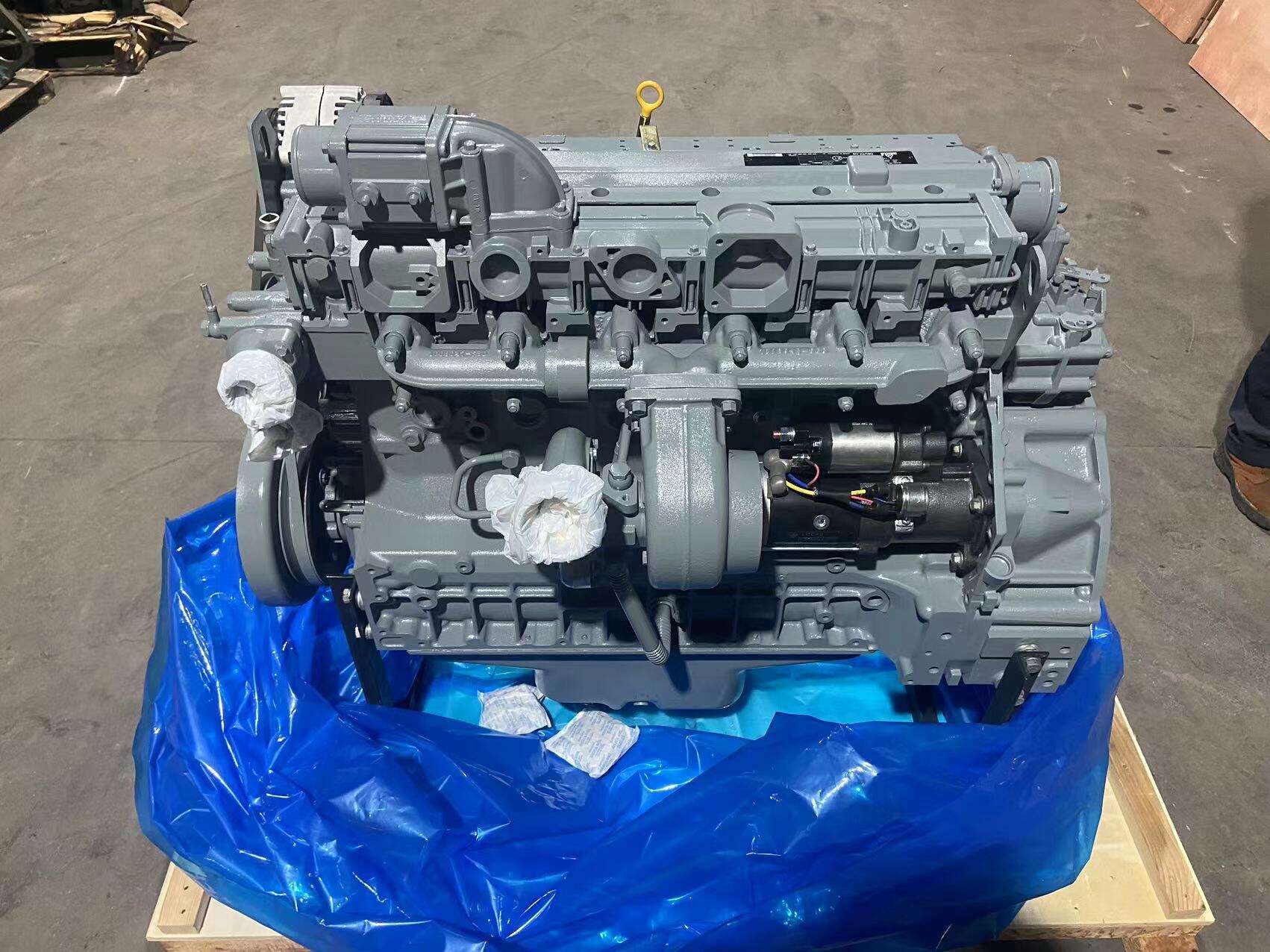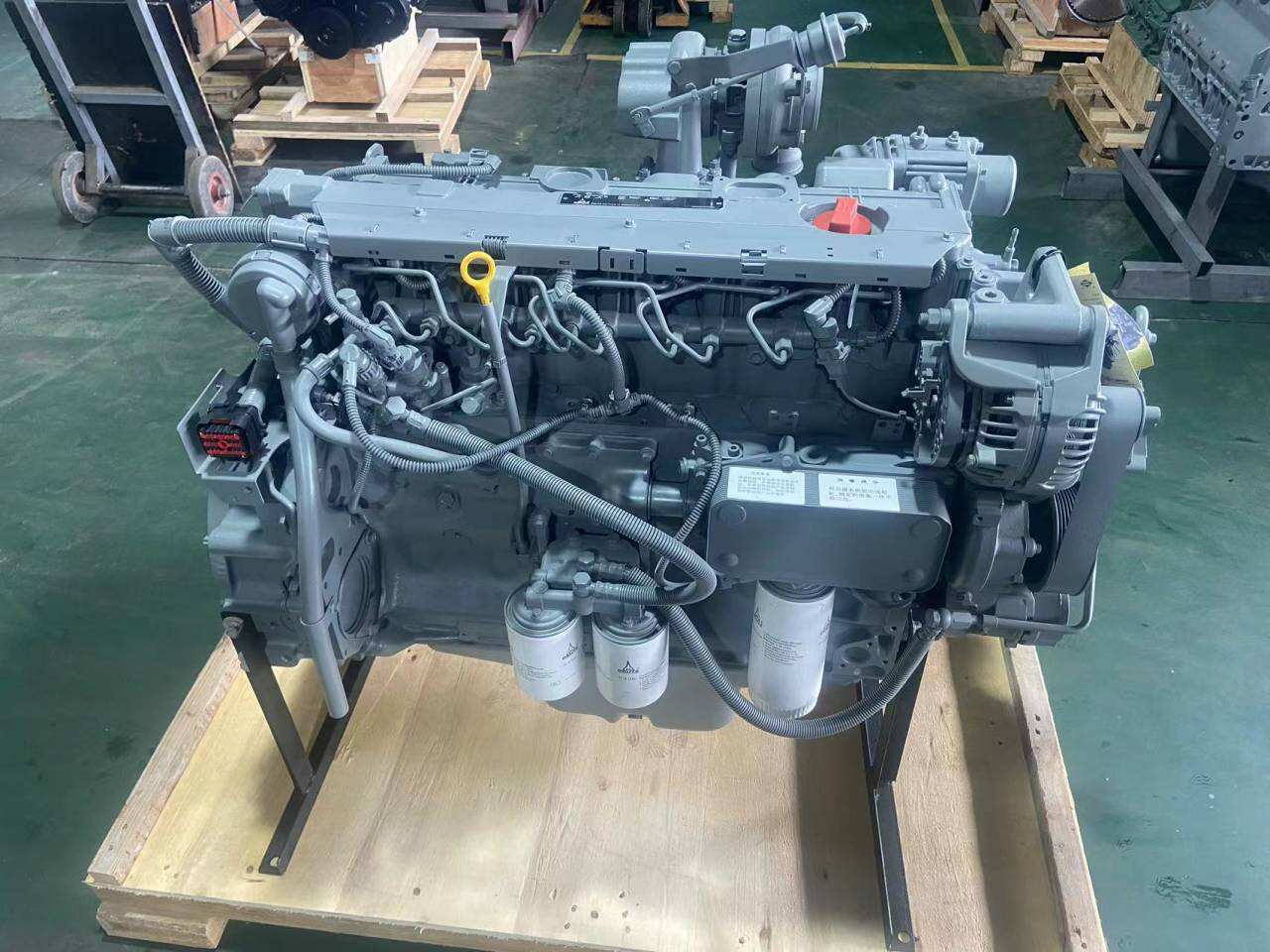For decades now, the Deutz engine has powered through some pretty tough environments across different sectors like farming equipment, construction machinery, mining operations, and even backup generators. People who work with these engines day in and day out know they can count on them when things get rough because they just keep going without breaking down. What makes this engine stand out? Well, let's take a closer look at how it actually works, what makes it tick under all those harsh conditions, and share some real world tips about getting the most out of these machines over time so they last longer between repairs.
Foundations of Deutz Engine Technology
The Legacy of Deutz Engineering
Established way back in 1864, Deutz AG stands as one of those classic engine makers that's been around forever. For over 15 decades now, they've built quite a name for themselves when it comes to pushing boundaries with diesel engines. Their product range includes both air cooled and liquid cooled models, which means these engines can handle pretty much anything from construction gear to agricultural equipment. Farmers love them for tractors, while contractors swear by them in heavy machinery situations where reliability matters most.
Air-Cooled vs. Liquid-Cooled Variants
What sets Deutz engines apart from many competitors is that they actually make both air cooled and water cooled versions available. The air cooled models work really well in places that get dusty or are hard to reach because those traditional radiator systems just don't hold up as long there. Water cooled engines tell a different story though. These tend to handle heat much better when machines are running at full capacity for extended periods. When picking between these options, it really comes down to what kind of conditions the equipment will face daily and what sort of power demands the application requires over time.
Modular and Scalable Architecture
Deutz engines are designed with modularity in mind. Many of their models share components across series, making them easier to service and maintain. This compatibility across variants reduces downtime and simplifies inventory management for spare parts.
Key Components and Performance Factors
Fuel Injection Systems
Deutz engines feature advanced direct injection systems to optimize fuel efficiency and reduce emissions. Their common-rail systems are particularly noted for precise fuel delivery, which enhances power output while maintaining compliance with environmental regulations.
Electronic Control Units (ECUs)
Modern Deutz engines are equipped with electronic control units that manage performance parameters in real time. ECUs adjust fuel flow, monitor temperature, and communicate fault codes, providing better diagnostics and smoother operation under varied load conditions.
Turbocharging and Aftercooling
To increase power density, many Deutz engines incorporate turbochargers and charge air coolers. These systems compress intake air and cool it before combustion, leading to more complete fuel burning, increased horsepower, and improved fuel economy.
Operational Efficiency and Practical Considerations
Cold Start Capability
Deutz engines are designed to perform reliably in cold weather conditions. Preheating systems and glow plugs assist in ignition, while low-temperature lubricants ensure fluid circulation from startup. This makes them particularly suitable for outdoor or winter-intensive industries.
Noise and Vibration Control
Sound insulation and vibration damping technologies are built into many Deutz engine models. These systems contribute to operator comfort, reduced wear on the chassis, and compliance with local noise regulationsâespecially important for urban construction and agricultural use.
Compatibility with Biofuels
Deutz engines have been developed with alternative fuels in mind. Many models are certified to run on biodiesel blends without compromising performance. This aligns with increasing demand for sustainable practices and reduced environmental impact.
Maintenance and Lifecycle Management
Scheduled Maintenance Practices
Sticking to regular maintenance really makes a difference when it comes to getting the most out of a Deutz engine over time. Things like changing the oil regularly, swapping out air filters when needed, and keeping an eye on coolant levels can stop little problems before they turn into big headaches down the road. Most Deutz specs actually suggest following service schedules based on how many hours the engine runs instead of just looking at mileage numbers. This approach works better for machines that sit in one place or get used hard day after day, which is pretty common with industrial equipment.
Using Genuine Spare Parts
Only using components that match Deutzâs OEM specifications is crucial for preserving engine integrity. Genuine parts ensure fitment accuracy, material compatibility, and long-term durability, all of which are critical to the engineâs overall performance.
Software and Diagnostic Tools
Deutz provides proprietary diagnostic tools that interface directly with the engineâs ECU. These tools allow technicians to perform updates, troubleshoot faults, and adjust performance settings. Proper use of diagnostic software enhances the serviceability and efficiency of modern Deutz engines.

Applications Across Industry Sectors
Agricultural Machinery
Tractors, harvesters, and sprayers powered by Deutz engines are prized for their torque delivery and fuel efficiency. In this sector, engines are expected to handle long operational hours, dusty conditions, and varied terrainâchallenges that Deutz engines manage effectively.
Construction Equipment
Backhoes, loaders, and mobile cranes benefit from the robust construction and compact design of Deutz engines. Their ability to maintain consistent performance under heavy loads and in harsh weather conditions makes them an industry favorite.
Marine and Power Generation
Deutz engines are also used in marine propulsion and emergency backup power. Their reliability and ease of integration into control systems make them well-suited for critical applications where uptime is essential.
Emerging Technologies and Sustainability
Hybrid and Electric Integration
As industries shift toward cleaner energy, Deutz has started integrating electric motors and hybrid technologies into its offerings. These systems reduce emissions while maintaining high performance, allowing companies to transition smoothly toward greener alternatives.
Emission Control Innovations
To comply with global emissions standards, Deutz engines are equipped with exhaust gas recirculation (EGR), diesel particulate filters (DPF), and selective catalytic reduction (SCR) technologies. These systems significantly reduce NOx and particulate emissions while preserving engine power.
Remote Monitoring and Telematics
Through digital platforms, users can monitor engine status, receive alerts, and schedule maintenance in real time. These technologies reduce unplanned downtime, increase operational transparency, and allow for data-driven decision-making.
Long-Term Ownership Considerations
Total Cost of Ownership
Although Deutz engines may involve a higher upfront investment compared to lower-tier brands, their efficiency, longevity, and reduced maintenance costs often lead to a lower total cost of ownership over time.
Resale Value
Engines from reputable manufacturers like Deutz often retain higher resale value due to their proven track record and global recognition. This makes them a smarter investment for businesses looking to upgrade fleets or resell used equipment.
Dealer Support and Global Reach
Deutz maintains a global network of service centers and authorized dealers. This widespread support ensures parts availability and expert servicing, regardless of your location or industry.
FAQ
What makes Deutz engines suitable for harsh environments?
Deutz engines offer robust design features such as air cooling, efficient sealing, and durable materials that make them ideal for extreme temperatures, dusty areas, and remote locations.
How often should I service my Deutz engine?
Service intervals vary by model and application, but a general guideline is every 250 to 500 operational hours. Always follow the manufacturerâs maintenance schedule and use genuine parts.
Are Deutz engines compatible with biodiesel?
Yes, many Deutz engine models are certified to operate on biodiesel blends, provided the fuel meets the appropriate standards. Consult the manual for specific fuel compatibility.
Can Deutz engines be integrated with modern monitoring systems?
Absolutely. Many models come equipped with ECUs that support telematics, remote diagnostics, and performance logging. This facilitates predictive maintenance and operational oversight.

